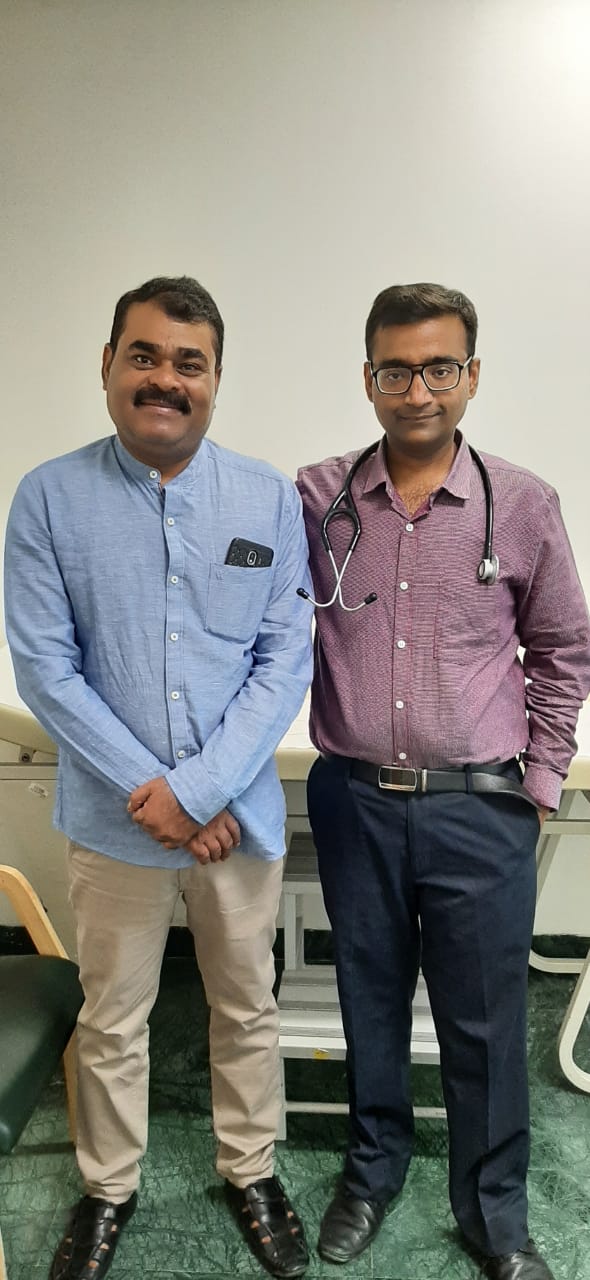World Stroke Day: Don’t Be the One
Dehradun, Speaking on the occasion of World Stroke Day, Dr. Nitin Garg, Associate Consultant, Neurology, Max Super Speciality Hospital Dehradun addressed the media to create awareness about immediate medical care that needs to be given to a stroke patient.
A stroke, a medical condition in which poor blood flow to the brain results in cell death, can be of two main types: ischemic, due to lack of blood flow, and hemorrhagic, due to bleeding. A stroke can render the affected part of the brain nonfunctional.
Symptoms of Stroke:
– paralysis
– numbness or weakness in the arm, face, and leg, especially on one side of the body
– trouble to speak, understand & see
– mental confusion
– trouble walking, loss of balance or coordination
– dizziness, sudden headache with an unknown cause
– warm, flushed skin
– faintness, dizziness, weakness
– very high fever
Risk factors/ Causes:
– Dehydration
– Hot & humid weather
– Rapid heartbeat
– Convulsions
– Unconsciousness
– Too much direct exposure to the sun
– Vigorous exercise in hot weather
– Working outdoors
Prevention:
Limit the amount of time you spend outdoors.
– Drink plenty of water
– Avoid tea, coffee, soda, & alcohol,
– Wear a wide-brimmed hat & long-sleeved clothing when outdoors
– Schedule heavy-duty activities for the beginning or end of the day, when it’s cooler
Emergency Measures:
– Move the person to a shady spot or indoor & have him/her lie down with legs elevated
– If able to drink liquid, have them sip cool water
– Remove clothing, apply cool water to the skin & fan the person
– Apply ice to armpits, wrists, ankles, & grain
– Heat stroke is a medical emergency
– Bring the patient immediately to the hospital after instituting emergency measures.
A stroke requires immediate medical attention in order to prevent:
– brain damage
– long-term disability
– death
Citing a very recent case of stroke Dr. Nitin Garg explained, “A 52-year-old active, healthy man experienced drooping of his arm and face while watching TV in July 2020. It was a usual ordinary day for him. After finishing his daily routine activities, he sat down to watch TV and suddenly experienced that his right arm started to slump. He couldn’t move the right side of his body and the right side of his face also started to droop. He informed his wife and without wasting further time, they immediately went to their family doctor who referred them to Max Hospital right away. The patient and his family were prompt in following the advice and thus presented at emergency where he was thrombolysed (breaking down of blood clots).”
He added, “The important thing about stroke is -time is the essence. Every second, following a stroke, 32,000 brain cells die. To prevent permanent disability, medical care and therapy should be initiated as soon as possible.”
In India, very few patients of stroke receive treatment within the golden period, either due to the inability to identify symptoms at the right time or to reach a medical facility in time. There are other challenges of an equipped hospital to identify and handle stroke effectively.
Dr Nitin Garg further explained, “A stroke does not discriminate. It can afflict people of any age group, any social strata and gender. 12% of these strokes in India are occurring in persons less than 40 years. 50% of strokes occur due to diabetes, high blood pressure and high cholesterol.”
In order to provide treatment within the initial Golden Hour a hospital has to ensure-
– Understanding of Stroke among the treating Staff
– Ability to address the emergency in time
At Max Super Speciality Hospital Dehradun, 100% of eligible stroke patients have received Thrombolytic therapy in the last 5 years. Owing to their strict compliance and audit, they have managed to maintain the recommended world guidelines of ≤60 minutes.
About Max Healthcare:
Max Healthcare is the Country’s leading comprehensive provider of standardized, seamless and international-class healthcare services. It is committed to the highest standards of medical and service excellence, patient care, scientific and medical education.
MHIL has a network of 12 hospitals and 4 medical facilities in North and West India, offering services in over 30 medical disciplines. Of the total network, 8 hospitals and 4 medical centres are located in Delhi & NCR and the others are located in the cities of Mumbai, Mohali, Bathinda and Dehradun. The Max network includes state-of-the-art tertiary care hospitals at Saket, Patparganj, Rajendra Place, Vaishali and Shalimar Bagh in Delhi and Mumbai, Mohali, Bathinda and Dehradun, secondary care hospital in Gurgaon and Day Care Centres at Noida, Lajpat Nagar and Panchsheel Park in NCR Delhi. The Super Speciality Hospitals in Mohali and Bathinda are under Public Private Partnership arrangement with the Government of Punjab.
In addition to the core hospital business, Max Healthcare also has two SBUs, namely, Max@Home and MaxLab. Max@Home is a platform that provides health and wellness services at home and MaxLab offers diagnostic services to patients outside its network.




Recent Comments